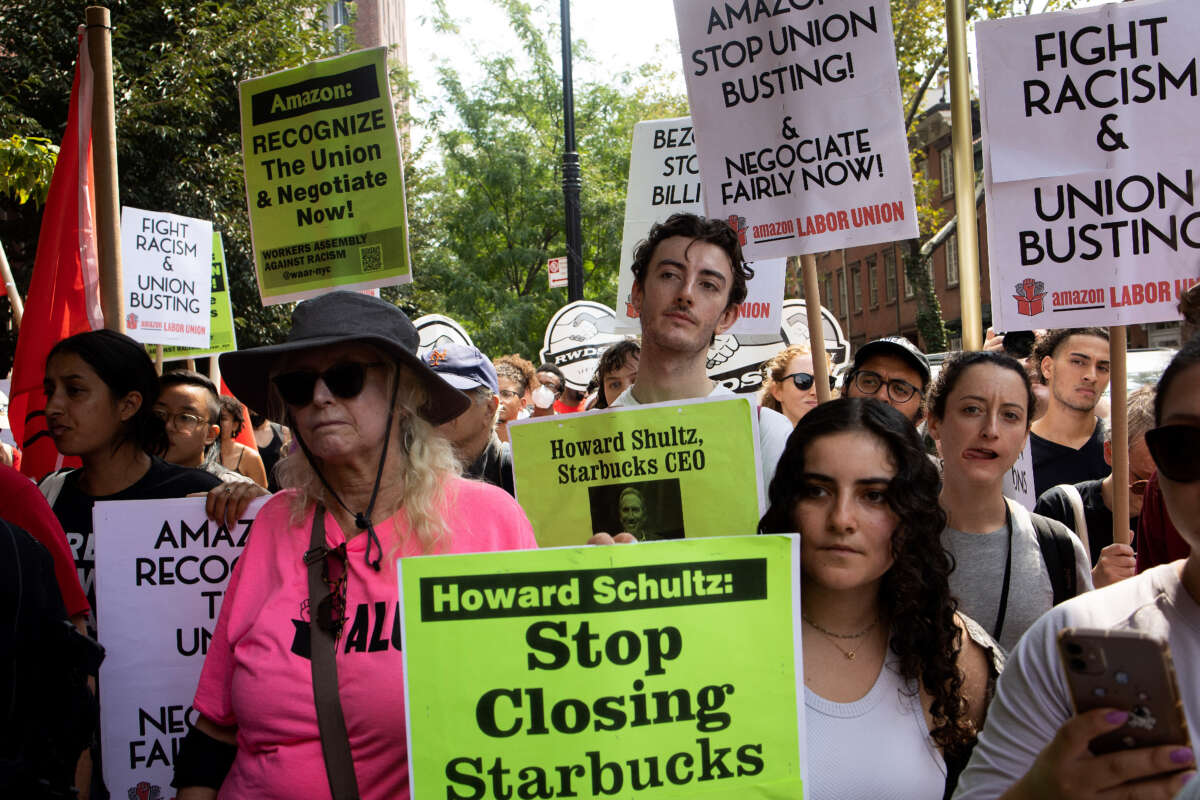The National Labor Relations Board (NLRB) ruled this week that companies that illegally fire workers will face an expanded set of penalties for the action, aimed at deterring companies from committing unfair labor practices and helping workers bounce back after being unexpectedly fired.
Typically, when an employee is found to be illegally terminated, companies are required to issue remedies like rehiring them and paying them for lost wages. The NLRB’s ruling on Tuesday makes it so that companies that commit an unfair labor practice additionally have to pay for “costs that are a direct or foreseeable result” of illegal conduct.
These costs could include things like credit card debt, out-of-pocket medical expenses or other expenses that may come as a consequence of being fired, especially as fired workers wait in limbo while unfair labor practices are litigated — a process that can take months. The board will be applying the new ruling retroactively to cases that are currently pending.
These penalties could also apply to workers who were not fired but who were otherwise illegally retaliated against during a union campaign through wage cuts or demotions.
“Employees are not made whole until they are fully compensated for financial harms that they suffered as a result of unlawful conduct,” NLRB Chair Lauren McFerran said in a statement. “By standardizing the Board’s make-whole relief to fully include the direct or foreseeable financial harms suffered by affected employees we will better serve the important goals of the National Labor Relations Act.”
The ruling is a win for the labor movement, which has long sought stricter penalties for companies that have engaged in illegal union-busting activities.
It comes at a particularly salient time for labor activists, especially pro-union Starbucks workers, who the company has been firing en masse over the past year of their union drive. Starbucks has fired over 150 pro-union workers, according to the union.
The NLRB is seeking a nationwide cease and desist order against the company in hopes of preventing it from firing any further pro-union workers, saying that the firing spree has had a vast “chilling effect” on the campaign. Starbucks Workers United has noted that the NLRB has made 40 rulings against Starbucks in its anti-union campaign, “making Starbucks one of the worst violators of federal labor law in modern U.S. history.”
Establishing further deterrents for companies that have been firing workers could help workers at anti-union companies like Starbucks, Amazon, and others, to feel more comfortable in exercising their rights to organize and unionize their workplaces.
“Fear of retaliation and dismissal is the primary obstacle stopping workers from getting involved in union organizing campaigns,” John Logan, a labor professor at San Francisco State University, told The Washington Post. “Increasing the currently meaningless penalties for terminating workers is the most obvious thing to fix that.”
Join us in defending the truth before it’s too late
The future of independent journalism is uncertain, and the consequences of losing it are too grave to ignore. To ensure Truthout remains safe, strong, and free, we need to raise $46,000 in the next 7 days. Every dollar raised goes directly toward the costs of producing news you can trust.
Please give what you can — because by supporting us with a tax-deductible donation, you’re not just preserving a source of news, you’re helping to safeguard what’s left of our democracy.
